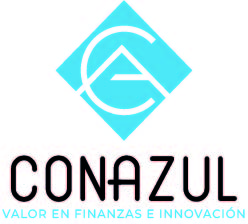One of the topics on which many of us agree during this unusual time we are living in is the importance of science. Few people can say they are not keeping an eye on the announcement of a vaccine or better therapies against Covid-19, even if they have little knowledge or do not regularly value science as the most important factor in human evolution. Whether we like it or not, we are dependent on science as the only human discipline that will get us out of this crisis.
Science, as a source of knowledge, is fundamentally based on the scientific method, whose main axis is the trial and error methodology. That is, scientists work to test hypotheses that they formulate based on observation, inference, or other methods, and they do so through the execution of experiments that either prove their hypothesis or discard it for being incorrect.
This cyclical process is repeated with new hypotheses generated from previous cycles until a solid hypothesis is validated with conviction, which becomes a theory or a statement.
One of the elements of the scientific method is error. Without error, there is no science, because every experimental process leads either to an error or, alternatively, to a validation of the hypothesis. The error, which occurs at least half the time an experiment is conducted, is not the end of the process, but rather can be a source of new hypotheses that initiate new cycles of experimentation.
We have seen many people criticizing scientists over the past few months for having been wrong on pandemic-related issues. Such criticisms ignore the foundation of science that knowledge is acquired through trial and error, and that these errors are an inevitable part of the process. Covid-19 is a new disease about which scientists still know little, and from which more will only be learned by applying the scientific method, which necessarily includes errors.
Error has a negative connotation in our culture. From the moment we think of an error, what comes to our minds spontaneously is a negative idea of failure. This is not the case in other cultures, where errors are seen as sources of new knowledge. In fact, the word for “fail” in English is used to describe a process that does not succeed, while in Spanish it is called “fracaso”, a word that has a heavy negative connotation. The same unfortunately applies to school grades and business ventures. Our culture punishes errors and stigmatizes them, even in the way they are named: “fracaso”.
Business models are now more than ever undergoing forced transformations due to the pandemic. These transformations can be temporary or permanent, with the latter often deciding the long-term survival of businesses. No business transformation, especially one that is abrupt like those happening now, is exempt from errors.
Just as there is the scientific method, there are widely tested methodologies for modeling and executing improvements or new businesses that allow errors to occur with the least cost, in the shortest time, and causing the least reputational damage possible. They are the business evolution of the scientific method. They do not avoid errors – which are necessary in the process – but rather decrease their impact. And their mechanics are exactly the same: hypotheses of market needs and solutions are proposed and then iteratively tested with bounded experiments until a solution fits and is adopted and consumed by the market. The main reference for these methodologies was created in the past decade by Eric Ries and is called Lean Startup.
These methodologies acquire much more importance in the current situation, given that what is at stake today is much more than just improvements or new businesses, but the survival of companies, which are often the family legacy and livelihood of many people.
It is imperative that business people get rid of the cultural paradigm that errors or failures are essentially bad. In reality, they are an inevitable part of the process of business transformation or reinvention, but with the proper use of modeling and execution tools, they can be minimized in cost, time, and even damages to the business reputation.

